T.R. Robinson's Blog, page 37
July 18, 2016
Win Kelly Charles - Interview

Welcome Win Kelly Charles
Author of:
I Win, an autobiographical/biographical book and
Several other books.
Please tell us a little about yourself.
My name is Win and I have a physical disability of Cerebral Palsy.
What first inspired you to write?
My life.
In what genre(s) do you prefer to write?
Biography was book number one. Since then children’s books and young adult novels which are all about disabilities have been my main focus.
Do you consider your books convey messages to readers?
Yes: messages of hope about disabilities.
What advice would you give to authors who are just starting out?
Find an excellent editor who is not a friend.
How do you go about marketing your books?
Facebook, podcasts, Twitter and just simply telling people to go to Amazon.
How important do you think review are?
Extremely important but don’t take a bad one to heart.
This is an age old question but one I consider of interest. If you were stranded on a desert island, which three books would you like to have with you?
Something that taught me about the gift of humanity.For example: Sexy Boss - How Female Entrepreneurs Are Changing the RuleBook for Money, Success and Even Sex, and How You Can Too!
Please share with us links to where readers may obtain further information and more insight into who you are.
Amazon Author Page:
http://www.amazon.co.uk/Win-Kelly-Charles/e/B009VNJEKE/ref=dp_byline_cont_book_1
Facebook: https://www.facebook.com/authorwc
Twitter: https://twitter.com/WinKellyCharles
Podcasts (x 2):
Butterfly Wisdom (educational - relating to disabilities):
https://itunes.apple.com/us/podcast/butterfly-wisdom-on-wheels/id1097347182
Win’s Women of Wisdom (conversations with those who are making a difference):
https://itun.es/us/X1Oo_.c
Thank you Win for sharing with us.
You may find all Win’s books listed on her Amazon Author page:
http://www.amazon.co.uk/Win-Kelly-Charles/e/B009VNJEKE/ref=dp_byline_cont_book_1
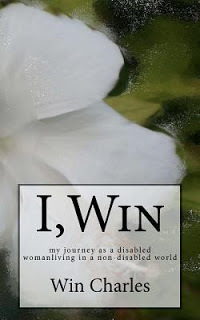
I read this book some time ago.
Amazon.com
Amazon.co.uk
If interested, you may read my review here.
I should point out there are additional, different, covers for this book depending upon where you are looking.
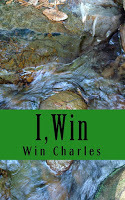

Published on July 18, 2016 10:14
July 11, 2016
Brexit & Royalties
 Though article 50 of the Lisbon Treaty, formally commencing the two year period of Britain’s withdrawal from the European Union (EU), has not yet been invoked the vote to leave is already having an impact. Primarily this is the falling value of the British Pound (Sterling). Secondary is the limiting of government decisions while a new prime minister is appointed. Mr Cameron had placed his reputation and position upon the vote being to remain within the EU. Naturally, with the exit vote he considered it appropriate to resign. A third impact is that there will be no meaningful, if any, discussion between other EU leaders and Britain until after article 50 has been invoked (many are very angry with the British people’s decision). This gives you a little bit of background to what has prompted me to write this post. Of course many of you will already have been aware of it but I just wanted to include something for those who may not be.
Though article 50 of the Lisbon Treaty, formally commencing the two year period of Britain’s withdrawal from the European Union (EU), has not yet been invoked the vote to leave is already having an impact. Primarily this is the falling value of the British Pound (Sterling). Secondary is the limiting of government decisions while a new prime minister is appointed. Mr Cameron had placed his reputation and position upon the vote being to remain within the EU. Naturally, with the exit vote he considered it appropriate to resign. A third impact is that there will be no meaningful, if any, discussion between other EU leaders and Britain until after article 50 has been invoked (many are very angry with the British people’s decision). This gives you a little bit of background to what has prompted me to write this post. Of course many of you will already have been aware of it but I just wanted to include something for those who may not be.So, what impact will all this have upon authors? Whether you have been published by a traditional publisher (perhaps one of the big four) or are self-published, the issues remain the same. At this stage the principle matters to consider, as far as I can see, are royalties, services and book price. Whether anything else will change in the future I have no idea.
Royalties
This issue really only effects British based authors. Regrettably there has been a knee-jerk reaction to the British people’s decision to leave the EU. Naturally we must accept investors are a little hesitant as the future for The United Kingdom is uncertain. There is much speculation but no one can truly know what is going to happen. Nevertheless, it is early days, especially as article 50 has not been invoked yet, but fear of the unknown, with the consequent reactions, has resulted in the value of the British pound falling dramatically.
In these days, when a large percentage of purchases are made over the internet, we must acknowledge the majority of book sells, especially those written by indie authors, are made in countries other than Britain. The royalty payable is initially assessed in the currency of the country within which the purchase was made and then converted into sterling; for payment into a British bank account. This last conversation is where the low value of the pound will take effect. We WILL receive less! As sad as it is we have no option but to accept the fact. I will discuss in a moment one possible way we may be able to counterbalance the impact upon our income.
Services
The majority of independent authors utilize overseas companies for formatting and publishing their books. For example: Amazon’s Createspace and Kindle; Smashwords; iBooks; Google Play Books etc. And of course we must not forget the vanity publishing companies many of which are based within the USA. All of these use the American dollar as their currency. The falling pound therefore means any services used by British based authors will cost more in real terms. Naturally, this also applies to services obtained from other non-British/non-US countries.
In addition, nearly all social media platforms, which we use for marketing, are based within the USA. Again any fees payable, for advertising, promotion packages etc. are also priced in US dollars. Anyone utilizing these will therefore, in real terms, receive less for their money. Something that needs to be taken into account when setting a budget for your marketing.
Book Price
There are two aspects to this:
Buying books:
Thankfully Amazon has established different branches/companies to serve specific countries or groups of countries/districts e.g. Amazon.co.uk where a book is paid for in sterling; Amazon.fr; Amazon.de etc. where payment is in euros; and so on. This protects British purchasers using the .co.uk site from the low exchange rate though their cash is in fact not worth as much as it once was. However, list prices for items purchased from other retailers are primarily in US dollars and therefore the low exchange rate will have an impact. Not good for the purchaser. Nor, I would suggest, for the companies; I anticipate there will be fewer purchases by British customers.
Selling Books:
Authors, not wishing to lose more income, may be tempted to increase the price of their books to counteract the impact of the devalued pound. Would this be worthwhile? First we should consider, if we decide to do it, how much to increase a book’s price by. In reality I suggest we are simply talking of pence, shillings perhaps, rather than pounds. What impact would this have upon prospective purchasers? To answer we must set aside the general debate regarding book pricing.
E-books, in particular, generally have a low purchase price and even with this authors still find it hard to sell many, if any. As said I am not going to discuss the issues of value for money, stinginess, or downright meanness. It has to be acknowledge that increasing a book’s price would probably discourage many from purchasing it. Though I, personally, consider it nonsense, the psychological effect of a .99p price tag is a reality; whereas someone may be prepared to pay £2.99 a price tag of £3.25 may well put them off.
So what should an author do? I suggest, at least for the foreseeable future, they leave their book list price as it is (of course this does not apply if you have a price reduction promotion). I appreciate for those who have books that sell well and have a dedicated following, increasing the price may not have a negative impact but here I am primarily interested in the majority of us indie authors.
Conclusion
The reaction to the exit vote has to be regretted. No one really knows what is going to happen and it may well be worthwhile waiting until Britain’s future, and the actual impact of leaving the EU, is clearer. I would be surprised if the pound were to remain as undervalued as it currently is: it is bound to pick up at some time.
I therefore suggest we authors should hold back on making any drastic changes, at least for now. Let’s be honest increasing your book price by a few pence, or shillings, will not really make a lot of difference and may in fact put prospective purchasers off. We are simply going to have to wait and see along with the rest of the world. In the meantime I wish you all continuing success.
Published on July 11, 2016 09:58
July 4, 2016
Walking Over Eggshells - Book Review
This is a book that I believe the majority, if not all, parents would do well to read. It clearly, and uncompromisingly, depicts how a parent’s behaviour may impact on their off-spring for life.
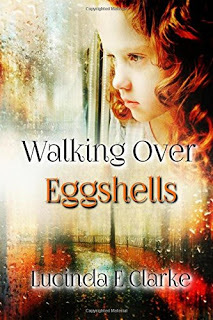 Lucinda Clarke is an excellent author whose writing carries you along with ease. She incorporates humour along with distress; emotions with thoughts, clear headedness with uncertainty and so on. Her writing is so smooth that there were occasions when I had been surprised by how many years had passed in the tale; there are the occasional references to age which establish the chronology.
Lucinda Clarke is an excellent author whose writing carries you along with ease. She incorporates humour along with distress; emotions with thoughts, clear headedness with uncertainty and so on. Her writing is so smooth that there were occasions when I had been surprised by how many years had passed in the tale; there are the occasional references to age which establish the chronology.Now, how much to tell you? I do not want to spoil it for potential readers by outlining too much. This is the author’s own story. I would call it an autobiography but many follow the modern trend of referring to all such works as a memoir. However, this book does encompass, in chronological order, a substantial proportion of the authors life.
We start with Lucinda when she is but a very young child. There is the amusing yet sad account of how at three years of age she packs her little suitcase and leaves home. This opens up to us the underlying river of emotions, abuse (mostly mental) and self-doubt that underpins the whole story and most of Lucinda Clarke’s life.
We read about the author’s battle to get away from home; to escape from abuse; to be her own person; to obtain further education from the places of her choice; to get to know the opposite sex. Then there is her marriage to a man who would prove unreliable and dishonest but whom she loved. Lucinda’s life subsequently takes a path that would lead to many adventures; wealth; poverty; civil unrest; etc., most of which occur in a variety of different African countries where her husband initially found employment. But then comes a time when she has to fend for herself and her daughters in countries that hold women in low regard. This is where her remarkable abilities come to the fore and, despite the years of being, and consequently feeling, undermined, she discovers abilities that surprise not only her but also us. That is how much she draws you in to the tale with her excellent writing. You feel with Lucinda; the joy of success; the fear of destitution; the fear of homelessness; concern for her children; how to make ends meet; the turmoil of deciding what action would be for the best. And all of this is without any of the support that should have been hers. Many of us have lived through difficult times but I would suggest the majority have taken for granted there will be some support from relatives, friends etc. but not for Lucinda. I am able to empathise as for most of my own life I have also had to go on without the support structure so many take for granted.
I think this must be where I stop. As said I do not wish to spoil the read for others.
As most of my readers know I believe in applying book ratings accurately (see here for further information). Lucinda is indeed an excellent writer; the style, flow and accuracy really do carry you through with ease and comfort without detracting from the intenseness of the dramatic moments. I am going to take the unusual, for me at least, step of allocating five stars. In my opinion the author, and this book, merit it.
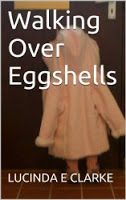
Fairly recently the author changed the book cover to the one you see above. A cover that I think will draw new readers and help them empathise with the author right from the start. However, many readers will know it by its original cover. Therefore, to avoid confusion, for them, I have added that original cover here.
Walking Over Eggshells is available in paperback and as an e-book.
Amazon.com Amazon.co.uk
You may be interested to know I, some while ago, also reviewed the author’s book Amie: An African Adventure. If you would be interested in reading that review, please click here.
Published on July 04, 2016 07:01
June 27, 2016
Sue Julsen - Interview

Welcome: Sue Julsen
Author of Bitter Memories; and
Ten other books.
Please tell us a little about yourself.
Born in Dallas, Texas, I was kidnapped by my father when i was three years old. After living a life I wouldn’t wish on any child, I began writing as a means of escape from the emotional scars and repetitive nightmares from my childhood. I believe the experiences from childhood led me to become a true crime author, with a passion for writing crime fiction and inspirational fiction.
Today i live in Nevada with my husband and our two dogs. I enjoy reading, writing and going for short walks with the dogs.
I currently have eleven books published, with more to come.
What first inspired you to write?
I started writing poetry after leaving home to express feelings I never could share with anyone. Finding some healing in this type of writing I started the long journey of writing my memoir, admitting to and reliving the abuse suffered as a child in order to continue healing and find forgiveness, not only for the abusers but for myself.
In what genre(s) do you prefer to write?
I prefer writing true crime, crime fiction and inspirational fiction.
Are you working on another book?
Yes. I’m currently working on another inspirational fiction story and i have a couple of true crime cold cases I’m researching.
Where any of your books have required research: What do you consider the best resources?
The best resources are to talk to people who were around during the time, but that doesn’t happen very often, leaving the internet the best resource. Of course this leads to more research to verify what’s found on the internet. It’s a vicious circle, but it’s also a lot of fun. When answers are found it makes it all worth it.
Do you consider your books convey messages to readers?
Because of my childhood most of my books do have a message for my readers.
That message can be to get involved and help the ones who cannot help themselves — mainly children being abused, while other books relay respect and caring for others to not taking all you hear or read at face value. Know your sources and do your own research when searching for the truth.
What advice would you give to authors who are just starting out?
My advice to people in general is to follow your dreams and never give up. This same advice goes even more so for authors. If a writer has a message to share but gives up, a story that needs to be told remains a secret and people who could have been helped continue to suffer in silence.
I’ve been asked many times if a writer should use their real name or a pen name. Unfortunately, no one can make this decision other than the writer of the story. When writing about your own life you’re putting yourself out there for ridicule and this is scary. I use my real name on all my books now but when I first started writing, some 50 years ago, I used a pen name because I had no confidence in myself. The few things I published under the pen name have now been republished under my real name.
If the problem is a lack of confidence, the best way I know to gain that confidence is to share your work with a published author you admire. I don’t mean a New York Times bestselling author. They wouldn’t have time for writers just starting out anyway. A self-published author you like to read is an excellent source to go to. Contact that person ask if he or she has time to read your story and give you their honest opinion. If it’s not what you expected, learn from your mistakes, but never give up on yourself or your dreams.
Do you self-edit or do you think a book should only be professionally edited?
I read a lot of books and professionals don’t always catch all mistakes. I self-edit multiple times before I send my project to several proof-reader friends. Once they’re done, I proof at least three more times before I consider it ready to publish.
How do you go about marketing your books?
Word of mouth has always been the best marketing for me, but I also use social media and a blog. I have three author pages on Facebook and those have been good, but I also use Google +, Pinterest, Goodreads, and LinkedIn.
How important do you think reviews are?
Good reviews are great, but I’m not sure how important reviews really are. Everyone is not going to like what they read and those who don’t like a certain book for one reason or the other are likely to give a bad review — although not a fair review. People should make up their own mind after reading the back cover written by the author. If they like what’s written on the cover, they should get the book and see for themselves if the writing is good or not.
Do you have a preferred genre for when you read?
I have my favorite authors but I like most any book with a good plot, great characters, excellent writing, and very few mistakes.
This is an age old question but one I consider of interest. If you were stranded on a desert island, which three books would you like to have with you?
Only three? Yikes! Well, those would be The Right Hand of Evil by John Saul, The Body Box by Lynn Abercrombie, and Ghost Walk by Heather Graham. But in order to survive on that island, I’d better have a ton of paper and lots of pencils to write my own books!
Please share with us links to where readers may obtain more information and insight into who you are.
Website: http://sj2448.wix.com/suejulsen
Blog: https://www.goodreads.com/author/show/4093695.Sue_Julsen/blog
Facebook pages:
https://www.facebook.com/sue.julsen2/ https://www.facebook.com/MemoriesBookSeries/(You need to be signed into Facebook to view this page.) https://www.facebook.com/RevengeBookSeries/
Twitter: https://twitter.com/SueJulsen
Google +: https://plus.google.com/+SueJulsenAuthor
LinkedIn: https://www.linkedin.com/in/suejulsen
Pinterest: https://www.pinterest.com/suejulsen/
Amazon Author Page: http://www.amazon.com/Sue-Julsen/e/B00494W39O
Please tell us where we may find your books:
Since I have eleven books my website is the best: http://sj2448.wix.com/suejulsen
You can watch a slide show of the covers, read descriptions of each book, and see the formats available with links to order each one.
Thank you very much Sue for sharing with us. We all have much to learn from each other.
I am including specific details of the following book because it is the one of Sue’s I have read.
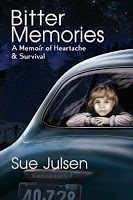
Amazon.com
Amazon.co.uk
Click here if you would like to read my review.
Published on June 27, 2016 07:40
June 20, 2016
Marketing Paranoia - 3 of 3
As an indie author I, along with many of you, have found the whole area of marketing a real challenge. Most, with just a handful of exceptions, state they would rather get on with their writing than have to spend time trying to gain readers attentions. It also has to be said many of us are anything but extrovert. However, unless we really do not wish people to be aware of our book(s) existence, we have no choice but to spend time on social media, and in other areas. Of course there are a few who have the means to employ others to market their books for them. But for the majority of us this is not an option; we just do not have the means.
After a few years of writing and trying to get my books noticed, by a variety of means, I thought it only fair to share my experience with my fellow authors. Hence this series of posts. In the first (1 of 3) I looked at Facebook, Twitter and Goodreads. In the second (2 of 3) I considered LinkdIn, Goole’s G+ and Pinterest. In this third, and final post (3 of 3), I thought it only right to draw the topic to a close. Of course, as always, I will share any new options I come across that I think may be of help e.g. new publishing companies; new advertising opportunities etc.
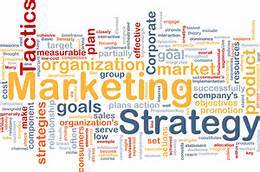 In this post I will have a quick look at Instagram, Wattpad and Blogging and undertake a general roundup of matters as I see them.
In this post I will have a quick look at Instagram, Wattpad and Blogging and undertake a general roundup of matters as I see them.Before continuing I feel I must emphasise again that I am not a marketing expert or professional. I am simply a private individual who also happens to be a self-published author.
This is an image sharing site; similar to Pinterest. I understand that it is fast becoming very popular. Part of this I suspect must be due to the ease with which someone may take a photograph with their smartphone and, virtually immediately, upload it to the site.
You are able to add captions and file paths BUT you should be aware that users cannot simply click on the url to go to the relevant site; they have to copy and paste it into a browser. However, any url you add to your profile will work.
I was not sure what to expect when I first started using the site but quickly learnt, or at least so it appears to me, that the average age of users is young. Consequently, they may not have an interest it things us older folks share.
You are able to advertise on Instagram; it uses Facebook adverts. I have to say I very much doubt advertising here will have much impact upon your potential sells or readers. Also, though I have never tried it, or come to that matter seen any, I presume adverts are simply included in the general string of posts/images. Very unlikely they will draw much attention.
Wattpad
This is a site where you may share your writing, even publishing it bit by bit, as you progress through your book. Please note: it is entirely free to users so you will not receive any financial compensation for your writing. Please also be aware that in the past there have been some copyright/plagiarism issues.
Again, I discovered the majority of users appear to be very young. This only dawned upon me after a couple of on-line conversations when I realised some of the people I was ‘talking’ with were still at school. In fact, due to some of the horrific content in a few of my books, I ceased sharing because I considered it was too much for such young people.
Now, there are one or two authors that have found success by sharing on Wattpad. It has to be said they wrote in the romance genre and, by their own admission, had to spend hours interacting with users.
As far as I am aware you cannot advertise on this site.
So far, for me at least, this has not proved a viable site.
Blogging
Every author, even if they do not have a website, should have a blog. It is a good way to share with readers, followers, and fellow authors. It is a place where people may get to know more about you and where you may share your knowledge. I am very grateful to those who have and do share their knowledge freely; when first starting out I knew little about the self-publishing world and learnt much from these people. I am now very grateful that I may share my own experiences that, hopefully, help others on their publishing path.
What to share is always a challenge. When first starting I tried to write about everything e.g. writing, marketing, my travels, an ‘agony aunt’ sort of column, my books etc. After a few years of experience and listening to other people’s experience and advice, I have concluded to have such a vast array of subjects may be confusing and unhelpful to others. You need to decide what it is you wish to convey to your blog readers.
· Is it simply to let them know who you are?· Is it just to promote your books? (Not a good idea to only do this.)· Is it to share your knowledge and experience?· Is it simply to let readers know what you are up to?
Of course there is much more you could include. What you share does need to be relevant and quality. This brings us to an area I am not good at. Who are you target audience? I have read a few articles about how to identify these but, so far, have not had much success in identifying my own. Nevertheless, I understand many have succeeded in finding theirs. If you have been able to do so then you will, or at least should, know what your audience is interested in.
Of course, as I am sure you will have discovered for yourself, there are millions of blogs out there. How do you therefore gain attention? Most of the social media sites I have referred to in these posts are good for connecting with people and most (not all - take care you do not breach group rules) allow you to post links to your blog. Therefore, anyone interested in your topics and discussion will know of your existence and will have the opportunity to follow your writings, if they wish.
General Roundup
You will have noted over these three posts that my conclusions have tended to be on the negative side. I should say that I have also received a few comments from others agreeing what I have shared reflects their own experience. Nevertheless, as mentioned more than once, social media does provide the opportunity to connect with others. It may not help directly with sells but it is better to be known by a few rather than no one. And, it is good to share and learn. There have been the occasional successes, sometimes of books considered unlikely, so we may always hope. If you do not have the information out there how will anyone know about your book(s)?
Having looked at these various sites I must conclude that advertising on any of them is not really very productive. To my mind it would be a waste of money.
I would love to hear of your own experiences (and successes). It is quite possible I have missed something.
I wish each and every one of you, success with your book(s) and hope life is kind to you.
Published on June 20, 2016 06:35
June 13, 2016
13 June 2016 - No New Post
The last week has been unexpectedly hectic. Some of you may have noticed I have hardly been on-line. Consequently, I have not had time to prepare this week’s post. My apologies.
In the meantime, you may like to have a look at the following:
There is much we may learn from each other’s experiences and the knowledge gained over the years. So here are some links to interviews with other fellow self-published authors. I appreciate these were the subject of recent posts but you may not have had time to read them before. The order is not preferential; it is simply in the order of when the interviews were published with earliest at the top. Simply click on their name to view the interview.
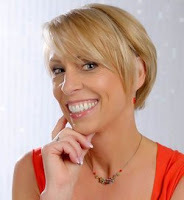
Linda Kovic-Skow
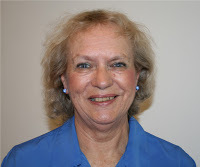
Pamela King
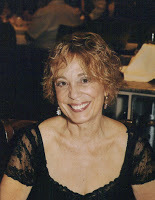
Cherie Magnus
You may also be interested to see the images I have used to depict the content from ‘Chapter 20 - Insanity?’ of the first in my memoir series ‘Tears of Innocence’. Click here to view the complete collection.

Published on June 13, 2016 07:35
June 6, 2016
Cherie Magnus - Interview
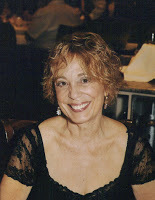 Welcome
- Cherie Magnus
Welcome
- Cherie Magnus Author of:
Church of Tango and
Arabesque
(You will find links to both books at the end of this post.)
Please tell us a little about yourself.
Born and raised in Los Angeles, I’ve been a dancer all of my life, while working at my day job as a reference librarian at the Los Angeles Public Library. After raising four sons, my husband died of cancer when he was only 54. I was devastated, and struck out to live in other countries on a mission of survival. Throughout everything I continued to write, a life-long pursuit.
What first inspired you to write?
Probably my love of reading from a very early age. I remember writing my first “book” when I was eight years old, plus numerous poems. Then when my father bought a typewriter, I really felt professional. For my junior high graduation, I received a pink portable Royal typewriter that I used for twenty years. I was singled out in all my writing classes, which made me want to pursue writing for publication.
In what genre(s) do you prefer to write?
My favourite genre is the personal and/or critical essay. I was a dance reviewer for many years for a newspaper in Los Angeles, and I adored that job. Not only did I get great house seats for all dance performances, but I knew my review would be published and read. I consider reviews a form of education—helping audiences to understand more about what they see. The personal essay was the form I used during the eight years I wrote my blog about tango and life as an expat in Buenos Aires.
As I lived the life of The Church of Tango, I couldn’t believe all the things that were happening to me and early on I thought that decade would make a good book. Memoir is more than memories of the past, what can make it rich is the reflection that comes years later. Otherwise a so-called memoir is just a diary.
Are you working on another book?
My next project is the sequel to The Church of Tango. I’ve had many requests for what happened after I settled in Buenos Aires with my cat. My problem in writing it is that I have to reveal many personal details about my Argentine partner during the ten years we were together in Argentina, and now the relationship continues even though I moved back to Los Angeles in 2014. He doesn’t speak English and is a dancer not a reader anyway, but he is very well known in the world of tango. People would love reading the juicy details that make the story interesting, but I have no wish to damage his reputation or hurt his feelings. The intimate details of any relationship are always interesting to outsiders, even if they are not about anything particularly horrible or sensational. So I’m having problems with getting going on this, the third in my series of memoirs.
Your books have obviously required research. What do you consider the best resources?
All my life as a dancer, my day job has been that of a professional librarian in the public library. So all resources have been at my fingertips. For Arabesque I needed to check on details of 1960—dates of world events, popular songs, books, movies.
For The Church of Tango, I took notes as I lived those years of tragedy and loss, but when I needed to know something specific—dates of an art exhibit in Paris, locations, I consulted Google.
Do you consider your books convey messages to readers?
I hope so. Memoirs are usually read because the writer is someone famous who the reader is curious about.
For unknowns, there must be something special about that person’s story. Before I wrote The Church of Tango, I read many memoirs of women who lost their husbands, who had cancer, who moved to foreign countries for financial reasons, who lost their homes and all of their belongings. But they all seemed whiney to me. I wanted to show how all of these difficulties could be survived, and even take one to a new life that while not like the old one that was lost, still contained joy, purpose, and love. Even for women of a “certain age.”
Don’t give up, I wanted to say. Find something that will carry you through the tragedies of life. For me, it was dance. You just need one thing that you are passionate about to keep you going.
In the prequel, Arabesque, the theme was that while life may not turn out as you had planned, it can be just as good—which I guess is also the theme of The Church of Tango. I also wanted to paint a picture of life as a UCLA student in 1960—how different university life and the whole world was back then before the Beatles, before the Pill, before the assassination of JFK, before Civil Rights.
What advice would you give to authors who are just starting out?
Write what you want to say, not what you think will sell.
Biographies, autobiographies, memoirs: What advice would you give, about using real names and descriptions, to authors who write in this genre? I ask because many raise concerns about the issue.
The main point of a memoir is that it is TRUE. That is the reason for its value and why the reader is interested. So in my opinion, changing names is ok but altering facts is not. In my memoirs, I only changed the names of a few negative characters with some exceptions.
I did have an experience though at a reading/signing of The Church of Tango where one of the characters was in attendance. I had changed his name because he is a well-known musician and I didn’t want him to feel his privacy was invaded. But his feelings were hurt that I gave him a different name in my story. I wished I had asked him. That would be the best policy: ask if possible if someone in your story would prefer their name to be changed.
Do you self-edit or do you think a book should only be professionally edited?
Of course I self-edit, but when I get it as good as I can, then I turn it over to a professional. I think it is mandatory to have your self-published book professionally edited. After writing and reading your own work ad-infinitum, you can no longer see errors in logic, spelling, grammar, transitions, backstory. A reader will not put up with these negative factors and after being assaulted for a few pages with them, will quit reading. And a reviewer probably won’t read more than two pages of a badly edited book.
I found my wonderful editor in my own writers group. After hearing her incisive comments on my and other members work, and hearing her read her own writing, I knew she understood the basics of a good book. She also has impressive credits as well as a professional website. I wouldn’t trust just anyone to do such an important job.
How do you go about marketing your books?
I’m ashamed to say that like most writers, marketing is my bête-noire. After each book was published, I did my best with no budget at all. I have a blog, I have a Facebook page for each book, I listed them on various websites, and entered contests, a couple of which The Church of Tango won. I offered promotions, and for a limited time gave away free e-copies on Amazon.
Nothing was very effective, really. What has saved me is that I’m rather well known in the tango world, and have a following.
How important do you think reviews are?
Doesn’t everyone think reviews are enormously important, even bad ones? Like the old adage, there’s no such thing as bad press. One review in an important medium is pure gold—no matter if it’s positive or negative.
If you consider reviews important, how do you go about obtaining them for your books?
It is almost impossible to get reviews in professional media for a self-published book. As a librarian, I have learned over the years to respect Kirkus reviews, but then I found out you can buy them—at quite a high price. I sent books to several sources, writers and professionals who I thought would enjoy my books, hoping for a review or at least a quote for the cover. But none of them responded.
Many readers contact me to say they’ve enjoyed my books, and I usually respond with a request to write a brief review on Amazon or Goodreads, and some do, but not all.
Do you have a preferred genre for when you read?
I like literary fiction, but lately I stick to history, biography and memoir.
This is an age old question but one I consider of interest. If you were stranded on a desert island, which three books would you like to have with you?
1. The Complete Works of Shakespeare
2. Norton Anthology of English Literature
3. A blank book and a pencil
Please share with us links to where readers may obtain more information and insight into who you are.
Cherie's website: http://www.mirasolpress.com
Cherie's Amazon Author Page:
http://www.amazon.com/Cherie-Magnus/e/B0073S5SKO/ref=dp_byline_cont_book_1
Cherie's personal blog: http://www.tangocherie.blogspot.com
Facebook Pages:
https://www.facebook.com/tangocherie
https://www.facebook.com/thechurchoftango/?fref=ts
https://www.facebook.com/arabesquememoir/
Thank you Cherie for sharing your experiences and knowledge with us.
Here are the links to Cherie's two books:
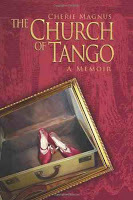
Amazon.com Amazon.co.uk
You may read my review this book here.
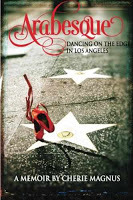
Amazon.com Amazon.co.uk
Published on June 06, 2016 09:34
May 30, 2016
Marketing Paranoia - 2 of 3
In the first of this three part post (Marketing Paranoia - 1 of 3) I considered whether and, if so, how, Facebook, Twitter and Goodreads could be utilised by authors for the marketing of their books. In this second part I intend to consider LinkedIn, Google’s G+ and Pinterest. In the third and final part I propose to do a general roundup of other sites, to have a quick look at blogging and hopefully come to a final conclusion.
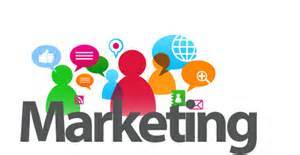 Again I must make clear I am not a marketing expert or professional. I am simply a private individual who also happens to be a self-published author. Consequently, most of the following are primarily my personal thoughts, mostly drawn from my own experiences, though in places I have also incorporated information gained from other’s comments, read in a variety of places.
Again I must make clear I am not a marketing expert or professional. I am simply a private individual who also happens to be a self-published author. Consequently, most of the following are primarily my personal thoughts, mostly drawn from my own experiences, though in places I have also incorporated information gained from other’s comments, read in a variety of places.
LinkedIn
This is primarily portrayed as a site for professionals including employer’s looking for new staff and for those seeking jobs. And in fact, as you would expect, there is a high percentage of professionals using the site. I understand it has some success for recruiters and for those seeking employment but have no idea how far this extends. Nevertheless, having identified this fact, I have to draw attention to the existence of many groups within the site that simply cater for those who have common interests. In our case this includes authors, editors, publicists, readers, marketing professionals, social media experts etc.
Do I consider it worthwhile for indie authors to have an account with LinkedIn? In my ‘non-professional’ opinion I would say yes. There are many writer/author/book related groups with many discussions relating to all aspects including the actual process of writing, marketing, self-publishing etc. Besides being able to, hopefully, help others by sharing our own experiences there is much we may learn. Unlike some other social media sites many professionals willingly share some of their knowledge to the benefit of people like myself. Obviously, they hope to gain clients and employment from participating but I have to acknowledge many are not dinting in what they share and are generally friendly.
Will being on LinkedIn help you sell books? To be honest I doubt it, well it has not for me. However, as with other sites, being a member does give you further exposure and this time to different categories of people then generally encountered on the usual social media. This is assisted by the fact you may post in the main home page stream as well as within the groups you have joined. Some groups also have promotional tabs specifically to help those who wish to advertise their services or sell their products.
How about advertising on LinkedIn? I have never looked into this for myself having assumed if I cannot afford the cost of adverting on Facebook or Twitter I am unlikely to be able to afford doing so on this ‘professional’ site. Nevertheless, I have noted there are ‘sponsored’ posts in the home page threads. These simply appear as additional posts within the thread and do not really stand out or draw attention unless the subject happens to be something you have an interest in. Consequently, I suspect these would not be of any real benefit to self-published authors.
Overall, I do recommend you having an account on LinkedIn provided you accept, as with other sites, it is unlikely to result in many, if any, book sells. However, you may possibly learn quite a lot, find information about marketing and publicity companies you have not previously heard of and may build further relationships all of which could bear fruit at a later stage.
Google’s G+
As this blog is hosted by Google’s Blogger I have naturally had an account with them for some time. However, I have to confess I am still learning about, and coming to grips with, G+. Consequently, the following may not be as comprehensive as it might be.
Equivalent to ‘groups’ on other sites, G+ has Communities (established by members with similar interests) and Collections (topic specific and usually run by just one member). You may follow both but, as a rule, cannot actually post into a Collection. As mentioned a collection is normally on a specific topic e.g. one I follow deals with WordPress development and plugins.
A word of warning: there are an amazing number of communities and it is easy, when first starting out, to be tempted to join many of them. I initially did this; there are a surprising number of book; reader; author; writer, reviewer etc. dedicated communities. It steadily became obvious, with all my other on-line activity, there was absolutely no way I would be able to follow, or contribute into, all of them. Of course you may decide to limit your activity to this and perhaps one or maybe two other sites in which case it may be viable. I recently went through the list and withdrew from many making my ability to participate so much more practicable.
Advantages to G+? I would like to say there is more opportunity to discuss issues, writing, books and other such matters. In truth, well at least from my limited experience, G+ has become just another place for most to simply try and push their books and services. There is some limited conversation but it does appear to be limited.
Advertising in G+: I have never attempted to do so. I am not even sure you can actually advertise within G+; I have not been aware of seeing any adverts there. It took a bit of research but I have finally determined there is only one advertising option within Google, ‘AdWords’ (use this term to search within Google). These adverts, depending of course upon the parameters you set, go across the whole of the Google network. A quick word about the cost: You need to set a price-per-click combined with a maximum daily amount. The suggestion is to start at £10-£20 (approximately $14.60-$29.25) per day. A definite advantage to advertising with Google is that you are able to pause, stop and re-start the advert at any time you choose. Really helpful if you want to change tactics or set up another event to connect with the advert. I have absolutely no idea how effective, or not, these adverts are. If you have any experience of them I would love to hear about it.
Is it worth having a presence in G+? Probably, overall, that would be a yes. G+ stretches far and wide and I think it only sensible to be there. However, how much time you spend on it will come down to your own needs, connections and experience. I have my doubts that it will result in many if any sells of your books but, as mentioned more than once, it is worth availing yourself of anything that gives you broader exposure. Just keep your expectations realistic.
Pinterest
As a visual site this, until recently, was of limited usefulness. Yes, it was a good place to show a different aspect of your books i.e. reveal the content (non-fiction) or story by using images. And, again, probably to a different audience to that you engaged with on other sites.
‘Until recently’, why did I say that? Pinterest have now opened up the site to enable users to sell and purchase direct, without having to click on a link that takes you to another site where you have to click and follow through again. That process did and does put many potential purchasers off. I have not used this option so, once again, cannot tell you if it has proven effective for authors. I would appreciate anyone who does have experience of it letting me know how they find it.
Advertising: You need a business account to advertise (personal accounts may be converted to a business account). The advert comprises a ‘promoted pin’ i.e. an image depicting what you are selling. The advertiser then selects a target audience and an amount they are prepared to pay per click, the same as most social media advertising. Of particular help is the provision of statistics to see how your campaign is progressing enabling you to make any changes you deem appropriate. Pinterest has made the buying process easy for purchasers which is always a bonus.
Now, something all of us need to be aware of. I understand the site now has a much larger membership than many ‘traditional’ social media sites. An indication of how society has become much more image orientated. In addition, there is little text which facilitates the general trend of reduced concentration spans and the desire for instant results. I therefore recommend authors joining the site. You do need to make a time commitment, to create boards, add pins (images/photographs) and for some interaction but I think it is worth it. But again, keep your expectations realistic. And, enjoy the site for yourself; there are many wonderful images there.
Conclusion to this second part
First I apologise for the length of this post. My aim is to keep posts to a reasonable length; most of us have time pressures these days. Nevertheless, without going into excessive detail, I wished to make what I share useful.
As with the first in this series I have to say, overall, I have doubts about the effectiveness of advertising books on these sites. But, yet again, I think it is worth your time to have accounts with them because they do provide greater exposure. And, as mentioned, you may learn quite a bit from some of them and may have the pleasure of making new acquaintances.
 Again I must make clear I am not a marketing expert or professional. I am simply a private individual who also happens to be a self-published author. Consequently, most of the following are primarily my personal thoughts, mostly drawn from my own experiences, though in places I have also incorporated information gained from other’s comments, read in a variety of places.
Again I must make clear I am not a marketing expert or professional. I am simply a private individual who also happens to be a self-published author. Consequently, most of the following are primarily my personal thoughts, mostly drawn from my own experiences, though in places I have also incorporated information gained from other’s comments, read in a variety of places.This is primarily portrayed as a site for professionals including employer’s looking for new staff and for those seeking jobs. And in fact, as you would expect, there is a high percentage of professionals using the site. I understand it has some success for recruiters and for those seeking employment but have no idea how far this extends. Nevertheless, having identified this fact, I have to draw attention to the existence of many groups within the site that simply cater for those who have common interests. In our case this includes authors, editors, publicists, readers, marketing professionals, social media experts etc.
Do I consider it worthwhile for indie authors to have an account with LinkedIn? In my ‘non-professional’ opinion I would say yes. There are many writer/author/book related groups with many discussions relating to all aspects including the actual process of writing, marketing, self-publishing etc. Besides being able to, hopefully, help others by sharing our own experiences there is much we may learn. Unlike some other social media sites many professionals willingly share some of their knowledge to the benefit of people like myself. Obviously, they hope to gain clients and employment from participating but I have to acknowledge many are not dinting in what they share and are generally friendly.
Will being on LinkedIn help you sell books? To be honest I doubt it, well it has not for me. However, as with other sites, being a member does give you further exposure and this time to different categories of people then generally encountered on the usual social media. This is assisted by the fact you may post in the main home page stream as well as within the groups you have joined. Some groups also have promotional tabs specifically to help those who wish to advertise their services or sell their products.
How about advertising on LinkedIn? I have never looked into this for myself having assumed if I cannot afford the cost of adverting on Facebook or Twitter I am unlikely to be able to afford doing so on this ‘professional’ site. Nevertheless, I have noted there are ‘sponsored’ posts in the home page threads. These simply appear as additional posts within the thread and do not really stand out or draw attention unless the subject happens to be something you have an interest in. Consequently, I suspect these would not be of any real benefit to self-published authors.
Overall, I do recommend you having an account on LinkedIn provided you accept, as with other sites, it is unlikely to result in many, if any, book sells. However, you may possibly learn quite a lot, find information about marketing and publicity companies you have not previously heard of and may build further relationships all of which could bear fruit at a later stage.
Google’s G+
As this blog is hosted by Google’s Blogger I have naturally had an account with them for some time. However, I have to confess I am still learning about, and coming to grips with, G+. Consequently, the following may not be as comprehensive as it might be.
Equivalent to ‘groups’ on other sites, G+ has Communities (established by members with similar interests) and Collections (topic specific and usually run by just one member). You may follow both but, as a rule, cannot actually post into a Collection. As mentioned a collection is normally on a specific topic e.g. one I follow deals with WordPress development and plugins.
A word of warning: there are an amazing number of communities and it is easy, when first starting out, to be tempted to join many of them. I initially did this; there are a surprising number of book; reader; author; writer, reviewer etc. dedicated communities. It steadily became obvious, with all my other on-line activity, there was absolutely no way I would be able to follow, or contribute into, all of them. Of course you may decide to limit your activity to this and perhaps one or maybe two other sites in which case it may be viable. I recently went through the list and withdrew from many making my ability to participate so much more practicable.
Advantages to G+? I would like to say there is more opportunity to discuss issues, writing, books and other such matters. In truth, well at least from my limited experience, G+ has become just another place for most to simply try and push their books and services. There is some limited conversation but it does appear to be limited.
Advertising in G+: I have never attempted to do so. I am not even sure you can actually advertise within G+; I have not been aware of seeing any adverts there. It took a bit of research but I have finally determined there is only one advertising option within Google, ‘AdWords’ (use this term to search within Google). These adverts, depending of course upon the parameters you set, go across the whole of the Google network. A quick word about the cost: You need to set a price-per-click combined with a maximum daily amount. The suggestion is to start at £10-£20 (approximately $14.60-$29.25) per day. A definite advantage to advertising with Google is that you are able to pause, stop and re-start the advert at any time you choose. Really helpful if you want to change tactics or set up another event to connect with the advert. I have absolutely no idea how effective, or not, these adverts are. If you have any experience of them I would love to hear about it.
Is it worth having a presence in G+? Probably, overall, that would be a yes. G+ stretches far and wide and I think it only sensible to be there. However, how much time you spend on it will come down to your own needs, connections and experience. I have my doubts that it will result in many if any sells of your books but, as mentioned more than once, it is worth availing yourself of anything that gives you broader exposure. Just keep your expectations realistic.
As a visual site this, until recently, was of limited usefulness. Yes, it was a good place to show a different aspect of your books i.e. reveal the content (non-fiction) or story by using images. And, again, probably to a different audience to that you engaged with on other sites.
‘Until recently’, why did I say that? Pinterest have now opened up the site to enable users to sell and purchase direct, without having to click on a link that takes you to another site where you have to click and follow through again. That process did and does put many potential purchasers off. I have not used this option so, once again, cannot tell you if it has proven effective for authors. I would appreciate anyone who does have experience of it letting me know how they find it.
Advertising: You need a business account to advertise (personal accounts may be converted to a business account). The advert comprises a ‘promoted pin’ i.e. an image depicting what you are selling. The advertiser then selects a target audience and an amount they are prepared to pay per click, the same as most social media advertising. Of particular help is the provision of statistics to see how your campaign is progressing enabling you to make any changes you deem appropriate. Pinterest has made the buying process easy for purchasers which is always a bonus.
Now, something all of us need to be aware of. I understand the site now has a much larger membership than many ‘traditional’ social media sites. An indication of how society has become much more image orientated. In addition, there is little text which facilitates the general trend of reduced concentration spans and the desire for instant results. I therefore recommend authors joining the site. You do need to make a time commitment, to create boards, add pins (images/photographs) and for some interaction but I think it is worth it. But again, keep your expectations realistic. And, enjoy the site for yourself; there are many wonderful images there.
Conclusion to this second part
First I apologise for the length of this post. My aim is to keep posts to a reasonable length; most of us have time pressures these days. Nevertheless, without going into excessive detail, I wished to make what I share useful.
As with the first in this series I have to say, overall, I have doubts about the effectiveness of advertising books on these sites. But, yet again, I think it is worth your time to have accounts with them because they do provide greater exposure. And, as mentioned, you may learn quite a bit from some of them and may have the pleasure of making new acquaintances.
Published on May 30, 2016 05:16
May 23, 2016
Pamela King - Interview
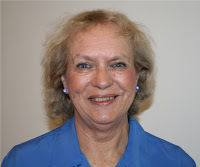
Welcome : Pamela King
Author of Angels with Drumsticks; andCo-author of For the Love of a Dingo
Links to both books are at the end of this interview.
Please tell us a little about yourself.
My journey from shy young woman, lacking in self-confidence to a mature woman with a self-assured persona who, as a tourism manager, was able to feel comfortable with people of all sectors of the community, give presentations and talks, teach and produce well written and attractive marketing materials was largely due to two bosses I had on my journey. They both insisted I was capable of carrying out tasks I would never had dreamed of undertaking; not only giving me confidence but an awareness of skills I was unaware of within my being.
What first inspired you to write?
Angel with Drumsticks was my first attempt at writing a lengthy story. It is actually my husband’s story about a painful part of his life that has stayed with him. We both felt that the story had to be told. It was an emotional exercise for him but I believe that now it is out he has finally accepted what happened.
In what genre(s) do you prefer to write?
I prefer non fiction and enjoy the research part of writing in that genre but I have some ideas for fictional work that I hope to pursue in the future.
Are you working on another book?
Yes, I am working on another biography. It is the story of an Australian woman who led the fight to have the Dingo acknowledged as an Australian native animal, understood as a gentle and loving companion and as Australia’s apex predator the protector of small native mammals.
Your books have obviously required research. What do you consider the best resources?
Personal knowledge and experience has been the core of both books published and the one I am currently working on.
My first go to is the Internet because it is quick and easy, however, as a resource it must not be depended on. This was reinforced when I was researching background material for Angel with Drumsticks.
For my current project I am fortunate to have original documents and the personal writings by my central character and these are certainly my most valuable resource.
Having said that, there is nothing quite like sitting in a library and carefully turning the pages of original books to give you a feeling that you are undertaking research; especially when the library concerned is a grand and historic building.
Do you consider your book(s) convey messages to readers?
I am not sure about my first two books I think they do have some subtle messages. However, I sincerely hope that my next book will help people to understand and appreciate more about the dingo.
What advice would you give to authors who are just starting out?
Start with something you know about so that you are comfortable with the backdrop to your story. That way you can focus on your story line and the scenes will fall into place naturally.
At the same time don’t include too many references to items that people worldwide may not be familiar with. I have just completed a book set in New York and I was totally lost when it came to mention of particular food, clothing brands and landmarks.
This is something I also learnt from you, Tanya, with my last book. It is a very Australian story about a little known state of affairs for the Australian dingo and I should have provided more background information for an international market. (It will be rectified in the next story)
Biographies, autobiographies, memoirs: What advice would you give, about using real names and descriptions, to authors who write in this genre? I ask because many raise concerns about the issue.
This is something I am struggling with currently. As I am at still at the research stage I have a bit more time to grapple with this issue.
Do you self-edit or do you think a book should only be professionally edited?
I give my manuscript to my husband first and he mostly picks up typos and gives his opinion on whether I have gone into too much detail or not provided enough. As English is not his first language there is a limit to what he will pick up.
I self-edit first to try and pick up simple things like typos, spelling and grammatical errors. I also look for words I have used too much, then search for them throughout the document and make changes.
I don’t have a professional editor but I do have a friend who is a former editor that I rely on. Her grammar knowledge is excellent (we call her the “grammar police”) and she made some brilliant suggestions for my first book.
How do you go about marketing your books?
Angel with Drumsticks has been difficult in many ways. Giving it a category whether it is music, religion or simply biography limits the target markets. The audience that remember the event is also relatively small. There is information about the event readily available, sadly much of it is incorrect.
For the Love of a Dingo is in many ways a marketing tool itself for my next book by giving readers a taste of what is to come.
I read somewhere that marketing a new book should begin three years in advance. I have established a Facebook page and blog specifically for the “Dingo Lady” project and most of my sales of For Love of a Dingo have come through these social media sources. With regular posts it keeps my project in the public eye.
This exercise has also put me in contact with what I refer to as ‘the new wave of dingo advocates’ who are up to date with current issues, laws and dingo research.
How important do you think reviews are?
I think they are valuable rather than important depending on whether other promotional opportunities area available.
If you consider reviews important, how do you go about obtaining them for your books?
I have been lucky that some authors have been happy to review my books in exchange for me reviewing theirs. However, I have found other than that it a very time consuming and frustrating chore.
I have used IndieView and that means wading through pages of reviewers to find those that might be interested in your genre and that it is in a format they will accept.
I believe it is important to treat the reviewer courteously and that means a fresh personalised email to each one. Also, Every reviewer wants different information included; some more than others. By the time your list has those who don’t reply crossed off and those that can’t/won’t accept the book you spent many hours for maybe only one reviewer to accept your book.
I have also used a couple of websites where you can list your book for review. One didn’t get picked up and the other site requires you reading other people’s books. That’s fair enough but you don’t get a big range to choose from.
Do you have a preferred genre for when you read?
I enjoy nonfiction particularly history and interesting memoirs.
For fiction my favourites are murder mysteries and legal thrillers but really anything that tells a good story.
This is an age old question but one I consider of interest. If you were stranded on a desert island, which three books would you like to have with you?
I’d probably miss the ship while trying to decide but here goes:
Narnia Chronicles for fantasy and child-like escapismA compendium edition of one of my favourite ‘who-dun-it writers’ A good size, up to date world history book with loads of information.
I don’t travel light – can I take my kindle I can get a lot more on that.
Please share with us links to where readers may obtain more information and insight into who you are.
Website: www.pam.id.au
Blogs:
Dedicated to books and research relating to the Australian Dingo: http://dingolady.blogspot.com.au/
Pamela's reviews of books she has read:http://pamferraribookreviews.blogspot.com.au/
A general blog in which Pamela shares personal information, ideas and thoughts:http://anunlikelyone.blogspot.com.au/
Thank you Pamela for sharing with us your interesting history and experiences.
These are the books referred to above with links to where you may obtain them:
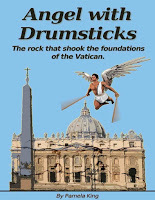
Amazon.com Amazon.co.uk Amazon.com.au
This book is also available in Italian here.
You may read my review of the book here.
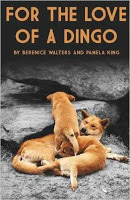
Amazon.com Amazon.co.uk Amazon.com.au
You may read my review of the book here.
Published on May 23, 2016 05:53
May 16, 2016
Marketing Paranoia - 1 of 3
Before I continue I must make clear I am not a marketing expert or professional. I am simply a private individual who also happens to be a self-published author.
Because this subject impinges upon so many areas, and wishing to keep posts to a reasonable length, I have split this topic into three parts, which I propose to publish fortnightly.
What am I going to consider?
(1 of 3) - today - Facebook, Twitter and Goodreads.(2 of 3) - 30 May - LinkedIn, Google’s G+, Pinterest and perhaps one other.(3 of 3) - 13 Jun - General roundup of other sites; blogging and final conclusion.
**********
As my fellow self-publishing authors know, besides the actual writing and publishing process there is the all-important marketing aspect. For many of us a bit of a horror. AND something we may become paranoid about if we do not take care. I know I have at times.
 What would our ideal marketing campaign comprise? Without doubt, should we have the means, we would love a full scale newspaper, magazine, television, billboard, etc. strategy. However, the majority of us do not have such resources.
What would our ideal marketing campaign comprise? Without doubt, should we have the means, we would love a full scale newspaper, magazine, television, billboard, etc. strategy. However, the majority of us do not have such resources.
So what options are there open to us? I will deal with those I consider the more obvious in this first post. Please note the following are primarily my personal thoughts, mostly drawn from my own experiences, but in places I have also incorporated information gained from other people’s comments that I have read in a variety of places.
Facebook
When I first commenced my publishing ‘career’ Facebook had been a recommended site for gaining attention. Authors were advised to have, besides their personal accounts/pages, individual author and book pages which they should get their friends, fans, readers, followers etc. to ‘like’. Though I never experienced it myself, the number of likes were supposed to impact upon how visible the author and their books became.
As we know, Facebook policy has frequently changed. Many authors consider these adjustments have been detrimental to them. One of the primary changes has now limited, without making a payment, how many of a user’s friends see their posts. To all intents and purposes this has indeed made the site less attractive for us. In fact, it has got to the stage where people I respect in the self-publishing industry now recommend authors only have their personal timelines and forget about pages. Something I concluded for myself some time ago. It is still worth posting about your activities and books; developing personal relationships remains important provided we bear in mind it is no longer as widespread as it used to be.
What about advertising on Facebook? Not having the resources, I have never done this but have observed others comments about their success or not. Overall the adverts are seen as a way of gaining attention but not sales. The author may limit the cost by setting the amount they pay for each click but it is clear the higher the figure the more attention. From what I understand a lower payment reduces the amount of times the advert will be displayed.
So, is it worth spending your valuable time posting on Facebook? Overall I would say yes provided you accept it is primarily a means for building relationships and gaining, limited, awareness for your book(s).
Twitter
I have been very sad to see the way Twitter has changed over the years. Or, rather I should say how people use Twitter now. At first I found Twitter to be a good site for engaging with a variety of people of all professions and persuasions. People readily entered into discussions and frequently shared helpful information from their own experiences. Indeed, I, as a novice at the time, found it very helpful. I learnt a lot. But now it appears to have degenerated into a site for shouting about and selling products and services. Perhaps it is just my experience arising from those who follow me or I have followed but, from comments I have read, I think not. In recent times I have tried to commence conversations and discussions but found not even one person responded. I have to confess I am getting tired of constantly seeing the same or similar ‘shouting’ tweets. Now and then there is a tweet regarding a proposed service I may be interested in but usually find, when I look, it is not for me or the cost is prohibitive. Of course there is also the concern about scams of which there are far too many these days.
How about advertising on Twitter? Generally, as far as I am able to gather, authors see such adverts as unresponsive. I think it does not help that these adverts are simply included as further ‘sponsored’ tweets in the string. And, again, as I understand it, these are considered little better than those on Facebook. I am not sure about the cost but presume the author has to set an amount payable for each click.
So, is it still worth while spending time on Twitter? Again I would say yes provided you do not build up your hopes and do not spend an inordinate amount of time on it. It is simply another means of trying to gain attention for you and your book(s).
Goodreads
Now, in theory, being a primarily reader orientated site, it would seem appropriate for authors to open an account. This is even more so with the current availability of an ‘author’ profile as well as the usual ‘reader/user’ profile. I must also include that Goodreads have steadily introduced and implemented facilities to help authors get themselves and their books noticed. Nevertheless, many have commented that frequently authors are simply interacting with other authors rather than a vast array of readers. A few will buy another’s book and some will offer free copies in exchange for reviews. However, with the tightening up, by Amazon, of regulations, such reviews are not now really permitted. Nonetheless, I find many authors share knowledge and experiences willingly. As a novice author I had been very grateful for this; again I learnt a lot. Even now, I am grateful to many for sharing new ideas and updated information. Also this is one site where users do respond and are willing to enter into discussions. An author may ask any question with a reasonable degree of confidence that they will receive a response and helpful advice and insights.
Advertising on Goodreads, from what I have read, it is generally not considered very effective. I also understand advertising on here is more expensive than other sites. Many have commented that they have seen no sales arising from these adverts. Again, I must make clear, I have never advertised upon Goodreads. Also, my personal opinion, I suspect adverts gain even less attention here than they do on Facebook.
Is it worth while spending time on the site? Without doubt I would say yes. You can build many relationships, gain and give advice, share and receive useful information. There is generally also the advantage of gaining information about latest trends. But, again, you must be realistic about how much impact being on here is going to have on your book sales. For most it will not be great but that is no reason not to use the site.
Conclusion to this first part
Much of what I have said impinges upon the negative, especially with regard to advertising. Nevertheless, as I have tried to point out, provided you retain realistic expectations, it is worthwhile being on these three sites. Building relationships is important and not just for the purpose of trying to sell books. I have met many nice, interesting and informative people by sharing in these sites.
Because this subject impinges upon so many areas, and wishing to keep posts to a reasonable length, I have split this topic into three parts, which I propose to publish fortnightly.
What am I going to consider?
(1 of 3) - today - Facebook, Twitter and Goodreads.(2 of 3) - 30 May - LinkedIn, Google’s G+, Pinterest and perhaps one other.(3 of 3) - 13 Jun - General roundup of other sites; blogging and final conclusion.
**********
As my fellow self-publishing authors know, besides the actual writing and publishing process there is the all-important marketing aspect. For many of us a bit of a horror. AND something we may become paranoid about if we do not take care. I know I have at times.
 What would our ideal marketing campaign comprise? Without doubt, should we have the means, we would love a full scale newspaper, magazine, television, billboard, etc. strategy. However, the majority of us do not have such resources.
What would our ideal marketing campaign comprise? Without doubt, should we have the means, we would love a full scale newspaper, magazine, television, billboard, etc. strategy. However, the majority of us do not have such resources.So what options are there open to us? I will deal with those I consider the more obvious in this first post. Please note the following are primarily my personal thoughts, mostly drawn from my own experiences, but in places I have also incorporated information gained from other people’s comments that I have read in a variety of places.
When I first commenced my publishing ‘career’ Facebook had been a recommended site for gaining attention. Authors were advised to have, besides their personal accounts/pages, individual author and book pages which they should get their friends, fans, readers, followers etc. to ‘like’. Though I never experienced it myself, the number of likes were supposed to impact upon how visible the author and their books became.
As we know, Facebook policy has frequently changed. Many authors consider these adjustments have been detrimental to them. One of the primary changes has now limited, without making a payment, how many of a user’s friends see their posts. To all intents and purposes this has indeed made the site less attractive for us. In fact, it has got to the stage where people I respect in the self-publishing industry now recommend authors only have their personal timelines and forget about pages. Something I concluded for myself some time ago. It is still worth posting about your activities and books; developing personal relationships remains important provided we bear in mind it is no longer as widespread as it used to be.
What about advertising on Facebook? Not having the resources, I have never done this but have observed others comments about their success or not. Overall the adverts are seen as a way of gaining attention but not sales. The author may limit the cost by setting the amount they pay for each click but it is clear the higher the figure the more attention. From what I understand a lower payment reduces the amount of times the advert will be displayed.
So, is it worth spending your valuable time posting on Facebook? Overall I would say yes provided you accept it is primarily a means for building relationships and gaining, limited, awareness for your book(s).
I have been very sad to see the way Twitter has changed over the years. Or, rather I should say how people use Twitter now. At first I found Twitter to be a good site for engaging with a variety of people of all professions and persuasions. People readily entered into discussions and frequently shared helpful information from their own experiences. Indeed, I, as a novice at the time, found it very helpful. I learnt a lot. But now it appears to have degenerated into a site for shouting about and selling products and services. Perhaps it is just my experience arising from those who follow me or I have followed but, from comments I have read, I think not. In recent times I have tried to commence conversations and discussions but found not even one person responded. I have to confess I am getting tired of constantly seeing the same or similar ‘shouting’ tweets. Now and then there is a tweet regarding a proposed service I may be interested in but usually find, when I look, it is not for me or the cost is prohibitive. Of course there is also the concern about scams of which there are far too many these days.
How about advertising on Twitter? Generally, as far as I am able to gather, authors see such adverts as unresponsive. I think it does not help that these adverts are simply included as further ‘sponsored’ tweets in the string. And, again, as I understand it, these are considered little better than those on Facebook. I am not sure about the cost but presume the author has to set an amount payable for each click.
So, is it still worth while spending time on Twitter? Again I would say yes provided you do not build up your hopes and do not spend an inordinate amount of time on it. It is simply another means of trying to gain attention for you and your book(s).
Goodreads
Now, in theory, being a primarily reader orientated site, it would seem appropriate for authors to open an account. This is even more so with the current availability of an ‘author’ profile as well as the usual ‘reader/user’ profile. I must also include that Goodreads have steadily introduced and implemented facilities to help authors get themselves and their books noticed. Nevertheless, many have commented that frequently authors are simply interacting with other authors rather than a vast array of readers. A few will buy another’s book and some will offer free copies in exchange for reviews. However, with the tightening up, by Amazon, of regulations, such reviews are not now really permitted. Nonetheless, I find many authors share knowledge and experiences willingly. As a novice author I had been very grateful for this; again I learnt a lot. Even now, I am grateful to many for sharing new ideas and updated information. Also this is one site where users do respond and are willing to enter into discussions. An author may ask any question with a reasonable degree of confidence that they will receive a response and helpful advice and insights.
Advertising on Goodreads, from what I have read, it is generally not considered very effective. I also understand advertising on here is more expensive than other sites. Many have commented that they have seen no sales arising from these adverts. Again, I must make clear, I have never advertised upon Goodreads. Also, my personal opinion, I suspect adverts gain even less attention here than they do on Facebook.
Is it worth while spending time on the site? Without doubt I would say yes. You can build many relationships, gain and give advice, share and receive useful information. There is generally also the advantage of gaining information about latest trends. But, again, you must be realistic about how much impact being on here is going to have on your book sales. For most it will not be great but that is no reason not to use the site.
Conclusion to this first part
Much of what I have said impinges upon the negative, especially with regard to advertising. Nevertheless, as I have tried to point out, provided you retain realistic expectations, it is worthwhile being on these three sites. Building relationships is important and not just for the purpose of trying to sell books. I have met many nice, interesting and informative people by sharing in these sites.
Published on May 16, 2016 06:19



